What To Expect From Your Inspection
Whether you are buying, selling or maintaining your home, I thive to provide professional and quality service from the moment I receive your call. I will walk through your home with you and teach you as much as you want to learn.
After we walk through the home together, I will explain the general condition of the home and systems with you and your agent. We will talk through any major issues that need to be addressed sooner rather than later.
I will also mention the items that you will want to keep an eye on for deferred maintenance. All of this will be detailed in the Easy-To-Read Spectora Report, which will be delivered in HTML and/or PDF format. From that report, you will be able to see the items we discussed, with images for reference.
A home is the biggest purchase most people will ever make, and a home inspection is always recommended before buying a home. It’s important to realize the condition of your investment.
While some little quirks may be nothing to worry about, there may be more serious issues that only a professional home inspector can assess.
A large part of surviving the home inspection is understanding what is and what isn't included. Here’s a helpful infographic that shows you what’s covered in a home inspection.
1. ROOF
This includes the condition of:
- The roof coverings
- Gutters & Downspouts
- Vents
- Flashings
- Skylights
- Chimney
- Roof penetrations and the general structure
2. ATTIC, INSULATION & VENTILATION
The home inspector will look at the insulation and ventilation of unfinished spaces, including:
- Attics
- Crawlspaces
- Foundation areas
- Exhaust systems
3. EXTERIOR
- Siding
- Windows & exterior Doors
- Flashing & trim
- Walkways & driveways
- Stairs, patios & decks
- Drainage
4. BASEMENT, FOUNDATION, CRAWLSPACE & STRUCTURE
- Foundation movement
- Cracks
- Structural concerns
- Indication of water penetration
5. COOLING
The condition of the cooling system, location of thermostat, energy source and the type of cooling system you have in the home.
6. HEATING
The condition of the heating system, location of thermostat, energy source and the type of heating system you have in the home.
7. FIREPLACE
The home inspector will inspect:
- The visible portions of the fireplace & chimneys
- Lintels
- Damper doors
- Cleanout doors & frames
8. PLUMBING
Plumbing tends to get the most attention due to the impacts a water penetration can have on a home. The home inspector will check:
- Main water & fuel supply shut-off valves
- Water heater
- Interior water supply & drains
- Sinks & toilets
- Tubs & thowers
- Waste & vent systems
9. ELECTRICAL
This section includes:
- The service drop (where the electrical company connects to your home)
- Conductors
- Service head & mast
- Electrical main
- Panelboards
- Grounding switches
- Light fixtures
- Outlets
- The presence of smoke alarms and carbon monoxide detectors
10. DOORS, WINDOWS & INTERIOR
This includes a representative number (some inspectors check all) of:
- Doors & windows
- Floors
- Walls & ceilings
- Stairs & Railings
- The garage door & openers


